waste sorting equipments introduction
1.Feeding system 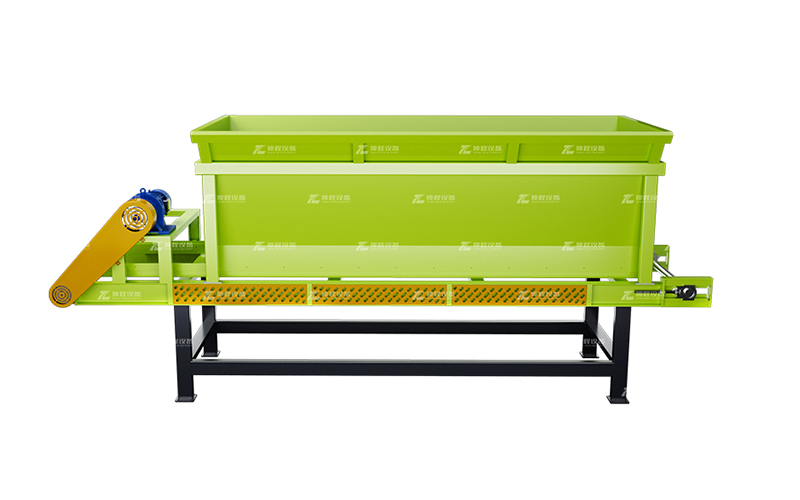
We provide several feeding way .such as over-head grab bucket loading, truck dumps directly,
excavator feeding /loader feeding and apron feeder loading etc . specific process :
Utilize excavator feed the decoration waste which has been pre-screened to vibrating feeder .
2.Finger screening system
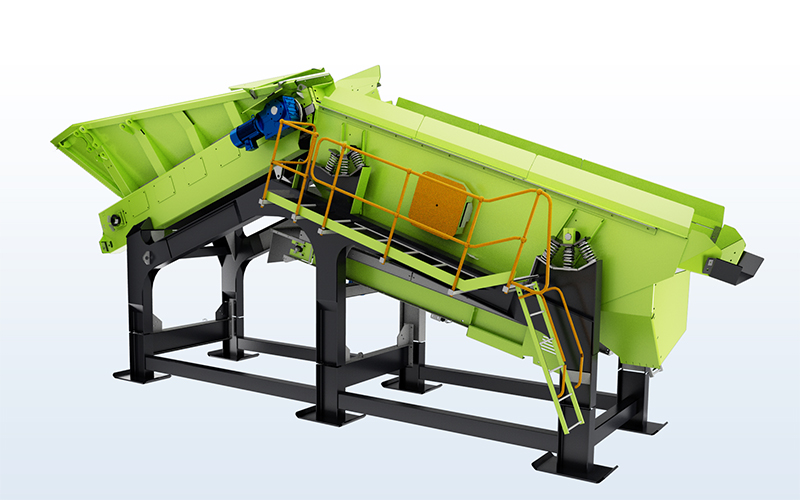
Considering the docration waste mixed with large size waste and flexable material and other compound .
For ensuring the subsequent sorting efficiency of equipments , so we need to separate the bulk waste ,
so as to protect the sequient screening-system to work stably ,that could reduce malfuntion rate for all
sorting system .At the same time , that could reduce the hard mateiral be worn out by the subsequent
sorting equipments and transmit equipments ,and extend the switching period of spare parts , so that all
the maintenance cost reduced .
specific process :discharged material from vibrating feeder will be transmit to finger screen . by the vibrating
force of finger screen , the waste been evenly deployed dispersing in the finger screen ,that is beneficial for
separating process. the material size more than 150 mm stay on the screen be sent to manual separation cabin,
while material size less than 150 mm drop to the aperture screen layer .
3.Auto-unloading type magnetic separator
Considering the mixed decoration waste include some proportion of ferrous metal , for avoiding these ferrous
metal contaminated other material , this processing include magnetic equipment which can separate ferrous metal
in high efficiency from mixed waste .The ferrous metal separated from waste can be sold directly .That's one
aspect to get some benefit from this waste sorting system .
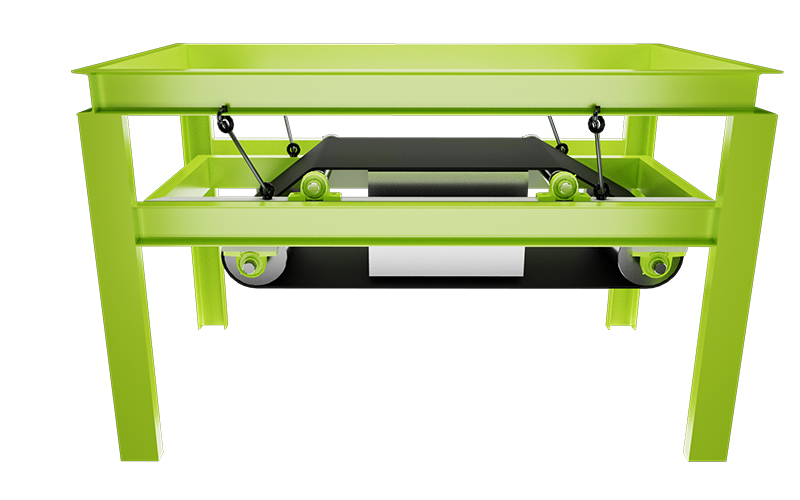
specific process :
Generally, a magnetic separator is hung over the belt conveyor,the distance above the surface of belt is between
300mm-350 mm . The advantage of the hanging-over type magnetic separator is to separate ferrow metal material
weight range from 0.1kg to 25 kg in high efficiency and high accuratility .
4.Trommel separating system
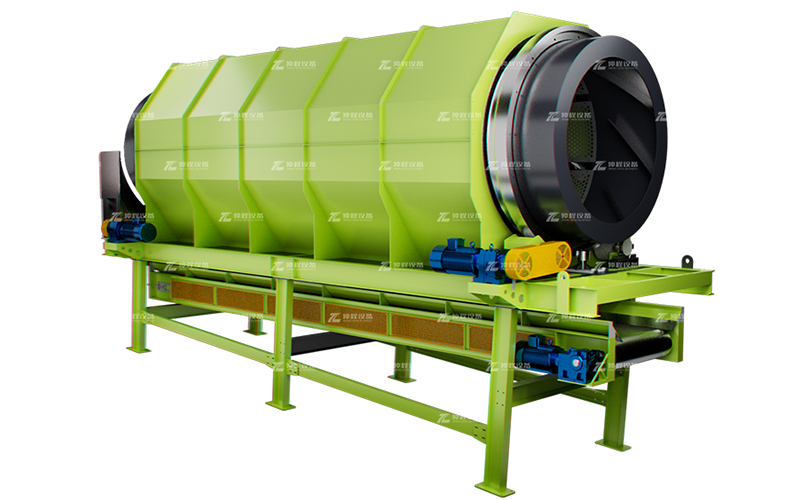
This trommel screen has high efficient screening, and the equipment power is lower than other screening equipment.
Compared with the traditional trommel screen, it has been improved a lot.
Generally speaking, it focuses on debris in decoration waste materials. The trommel screen is equipped with a lifting plate inside,
which can prevent the screen from blockage and disperse materials efficiently. Greatly reduce the existence of plugging phenomenon.
specific process :When the material transmit into the trommel screen . Due to the rotation and tumbling of the trommel equipment,
the materials flip 360 degree in the drum screen. by accuratly set the aperture ,the mateiral larger than 35 mm kept in the drum
while the material smaller than 35 mm be filtered by drum aperture .
5.Windshifter separating system
Considering the light material in the decoration waste (like plastic , fabric , leather, etc ) and heavy material (like brick,debris,
glass ,etc )possess big density difference .So this inspire us to adopt windshifter to separate different density materials . To
ensure to get a higher separating effect , the material need to be evenly dispersing on the feeding belt conveyor of the windshifter.
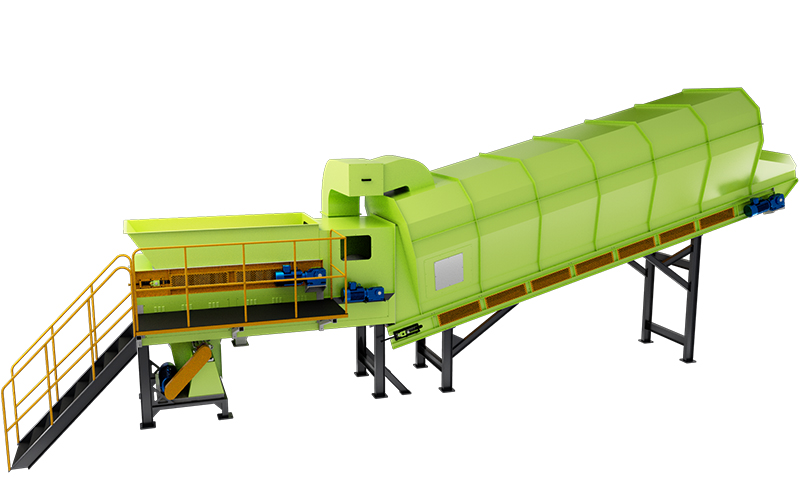
specific process :The material within the size between 40-100 mm transmitting from trommel screen be conveyed to the windshifter .
The light material (like plastic)be sent to sediment room by the pressure blower which can adjust the wind volume and wind speed .
Terminally, they be transmitted to light material pile ,while the aggregate transmit out by another belt conveyor .
6.Manual separator system
The manual separation cabin serves as a crucial component in waste sorting systems, particularly in facilities handling
mixed or complex waste streams like decoration waste. Its primary function is to facilitate the manual sorting of different
types of waste materials by trained workers.
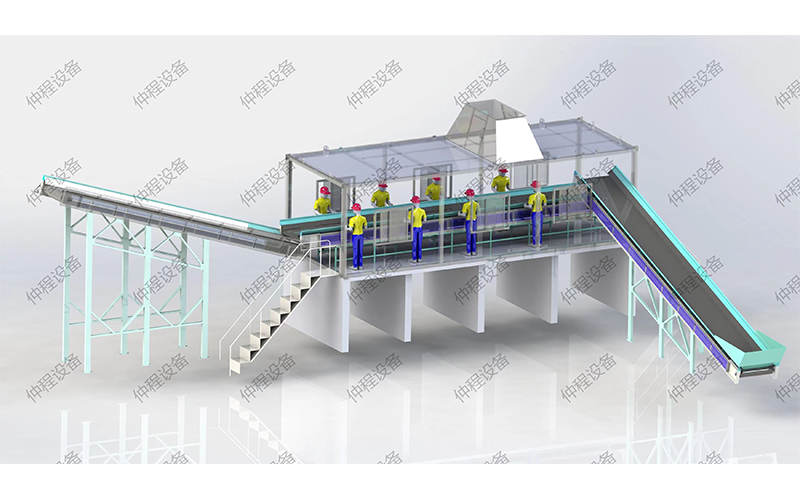
specific process :The large size above the finger screen part of decoration waste then transported to manual sorting
stations where trained workers separate the materials by hand. Each worker is stationed at a specific section of the
conveyor belt or sorting table and is responsible for picking out a particular type of material.
-
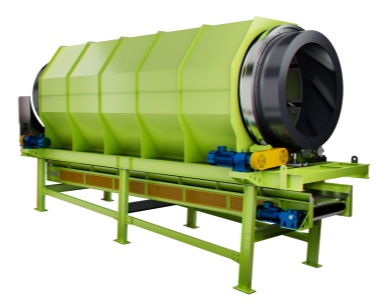 Trommel screenTrommel screen, also known as drum screens, are widely used in various industries for sorting and separating materials.Get Quote
Trommel screenTrommel screen, also known as drum screens, are widely used in various industries for sorting and separating materials.Get Quote -
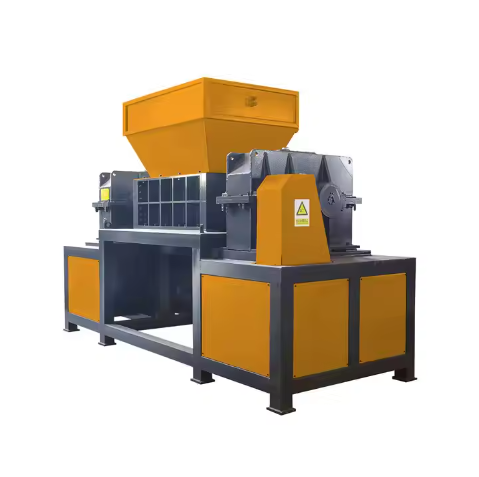 Crop straw double shaft shreddApplications:Biomass Energy Production: Shredded straw can be used as a feedstock for bioenergy plants to produce electricity or heat.Livestock Feed: Reduced-si...Get Quote
Crop straw double shaft shreddApplications:Biomass Energy Production: Shredded straw can be used as a feedstock for bioenergy plants to produce electricity or heat.Livestock Feed: Reduced-si...Get Quote -
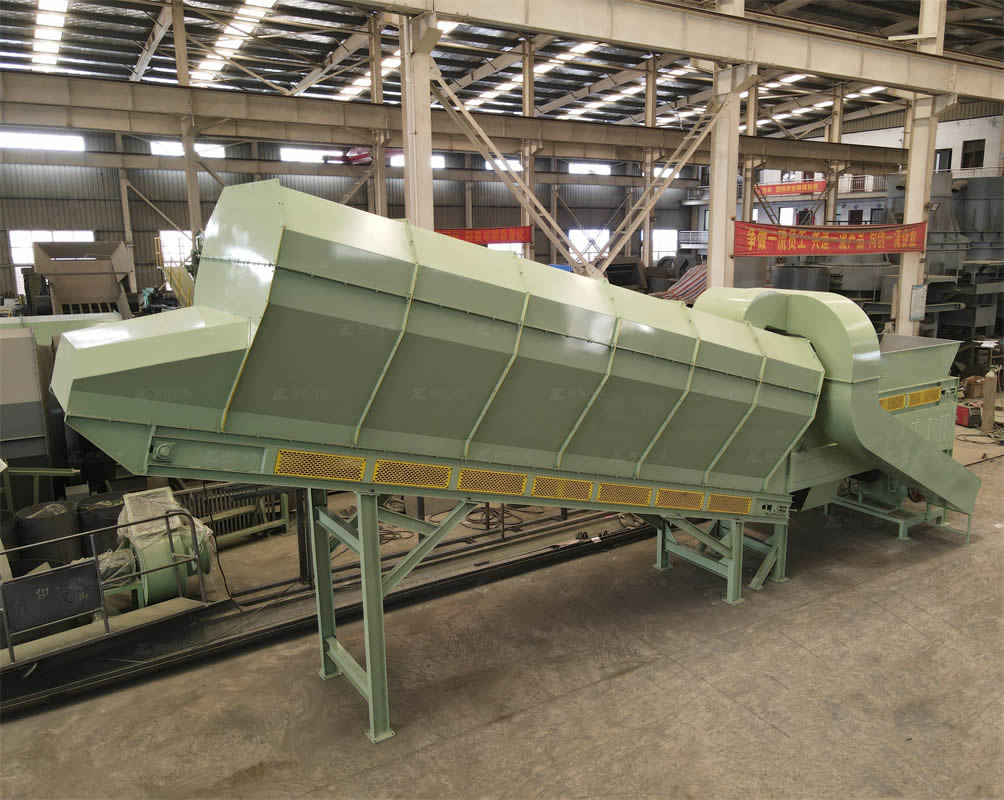 Zhongcheng Air Drum SeparatorAir drum separators effectively separate lightweight materials (e.g., plastics, paper) from heavier materials (e.g., metals, glass). This high efficiency is cru...Get Quote
Zhongcheng Air Drum SeparatorAir drum separators effectively separate lightweight materials (e.g., plastics, paper) from heavier materials (e.g., metals, glass). This high efficiency is cru...Get Quote
-
2023-01-12Conveyor BeltGarbage conveyor/Trash conveyor belt system is a processing line to classify paper, plastic, metal, glass, and organic matter and realize the recycling of rubb...
-
2024-08-16Crop straw double shaft shredderApplications:Biomass Energy Production: Shredded straw can be used as a feedstock for bioenergy plants to produce electricity or heat.Livestock Feed: Reduced-si...
-
2024-07-10msw trommel screen for waste recycling machineThis equipment is suitable for the particle classification process in all walks of life:The equipment is simple, easy to operate,and can be operated with a larg...
-
2024-05-18C Series Jaw CrusherC series jaw crusher is a jaw crusher with excellent performance introduced and developed by zchmachinery according to the market demand. Compared with traditio...
-
2024-06-08Five factors influencing the output of a drum screen.The input efficiency and separation efficiency of the drum screen are controlled by the screen hole size, drum screen diameter, rotation speed, baffle type and ...



